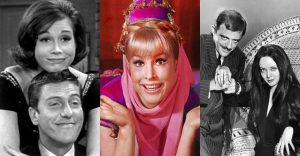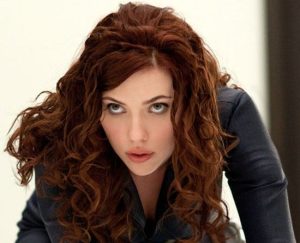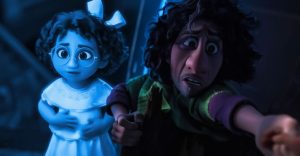The True Meaning of mother! Explained

Warning: Major SPOILERS for Mother! ahead
–
Darren Aronofsky’s mother! is virtually guaranteed to be one of the most controversial films of 2017 – unless, of course, nobody actually ends up going to see it. It’s got a lot on its side, however, including plenty of festival buzz, a well-timed (for a horror movie) fall release date, and the presence of popular lead actress Jennifer Lawrence in the title role. While the advertising and early plot descriptions have kept the actual storyline largely secret, the film’s trailers have been designed to give the impression that mother! is something like a home invasion thriller or a haunted house movie (or maybe both?). Many audiences are going to be surprised to discover it’s more like a surrealist “art film” complete with an abstract, symbolism-laden narrative and a horrifically-violent, taboo-shattering climax that seems calculated to drive audiences into a fit of moral outrage.
But even audiences who don’t walk out of theaters inclined to demand an air-sickness bag, their money back or both may be wondering exactly what Aronofsky’s bizarre, inscrutable, intensely-personal yet deliberately evasive film is actually supposed to “mean.” And while the point of abstract and/or surrealist art is often meant to be left to individual interpretation (and, obviously, only Aronofsky himself can tell us what every creative choice was ultimately meant to convey), there is definitely an identifiable narrative through-line and several clearly recognizable themes.
THE STORY (FULL SPOILERS)

Following an unexplained introduction where a house-fire surrounding a young woman burning alive “rewinds” itself to an unburnt state and seems to “generate” Jennifer Lawrence asleep in a bed, we enter our main story. Lawrence and Javier Bardem are a newly(?) married couple (the stark age difference between the two is intentionally noticeable and part of the storyline) living alone in a large rustic country manor in the middle of a forest-surrounded empty field.
Though impressive-looking, the house was damaged at some point prior to their marriage in a fire, so she is working to rebuild it while he (no one in the film has a proper name, because it’s that kind of movie) toils at work in his upstairs office. A once world-famous poet, he has been struck numb by writer’s block (and it’s implied, impotence – the symbolic parallels at play here are the opposite of “subtle”), and hopes to draw inspiration from his prized possession: a beautiful crystal of unknown origin that he claims to have found, undamaged, in the ashes of the previous fire. She is happy, but plagued by visions of the foundation by the basement furnace “moving” and of a heart-like organ beating inside the walls themselves.
Their tranquility is interrupted by the suspiciously-unplanned arrival of an older married couple (Ed Harris and Michelle Pfieffer), who turn out to be “huge fans” of the poet’s work, and whom he invites to stay as guests despite the bewilderment and obvious unease of Lawrence’s character. Though the poet likes their company as their fawning fan-praise makes him feel creative again, the pair are rude and obnoxious, showing disregard for their surroundings and their hosts’ belongings. Eventually they sneak into the poet’s off-limits office and accidentally break his prized crystal – infuriating him and leading him to board up the office and order them to leave. Instead, they are joined by their feuding sons (Brian and Domnhall Gleeson), who get into a brawl that leaves the older dead from a head wound. Later, Lawrence’s character observes the leftover blood stain seeming to eat through the floor boards and into the basement, forming a door-shaped mark on a wall that she smashes to discover a hidden oil tank.
The poet – once again to the obvious discomfort of his wife – allows the couple and their friends to use the house for an impromptu wake. During the wake Lawrence grows angrier and angrier as the guests intrude on her space and break things in the house until she throws a screaming fit and manages to order them all to go. She attempts to leave herself, but instead a shouting match with her husband leads to a violent, passionate sex. The morning after, she announces that she “knows” she has become pregnant and he leaps from bed and begins writing again – his writer’s block seemingly cured along with his impotence.

His resulting poem is a huge worldwide hit, which brings his publisher (Kristen Wiig) to the house but also soon a throng of autograph (and “wisdom”) seeking fans that the poet can’t seem to turn away – even as they begin physically tearing the house apart for souvenirs and assaulting Lawrence’s character, using sayings “of The Poet” to justify their actions. Hundreds of people arrive, and (over what seems to be just a few hours) the gathering becomes a party, then a rave, then an orgy and then an indoor post-apocalyptic hellscape complete with caged sex-slaves, icons of The Poet being venerated in religious ceremonies (evoking Ash Wednesday, the Golden Calf and others) and Wiig’s character executing people (heretics?) with pistols. A SWAT team attacks, killing many but failing to rescue Lawrence, who goes into labor and hides with The Poet in the upstairs room. She gives birth to a boy, but refuses to let The Poet hold it for fear of him letting his crazed fans near it.
Eventually, she falls asleep and awakens to find the baby taken. Downstairs, the poet has allowed the rapturous crowd to pass his child around, but they are too rough with him and Lawrence is unable to reach him before we hear sound-effects indicating that he’s been hurt. When she reaches the front of the crowd, she discovers that the fans have torn the baby into pieces and are ritualistically eating the remains in order to feel closer to The Poet, seemingly based on his eulogy from the earlier wake scene. Enraged, Lawrence kills several of the murderers with a shard of glass but is violently beaten and attacked with misogynist insults – releasing a (seemingly) telekinetic earthquake that cracks open the floor and allows her to escape the basement, where she uses the oil tank to ignite a massive explosion that destroys the house and (seemingly) kills everyone, including The Poet and herself.
But in the aftermath of the fire, we find The Poet – completely unharmed – carrying his wife’s burned but still-living body upstairs into his office. She asks who (or what) he is, receiving only cryptic answers and vague statements that he feels remorse but is a Creator and “needs to create.” He says that he needs one more thing from her – her love – and she bids him to take it. He removes her heart from her chest, killing her, and squeezes the heart until it becomes a crystal just like the one from before. As he places it in the original’s place of honor, the “rewinding fire” effect from the beginning starts up again, this time causing a new woman to “regenerate” in the bed. The end.

















